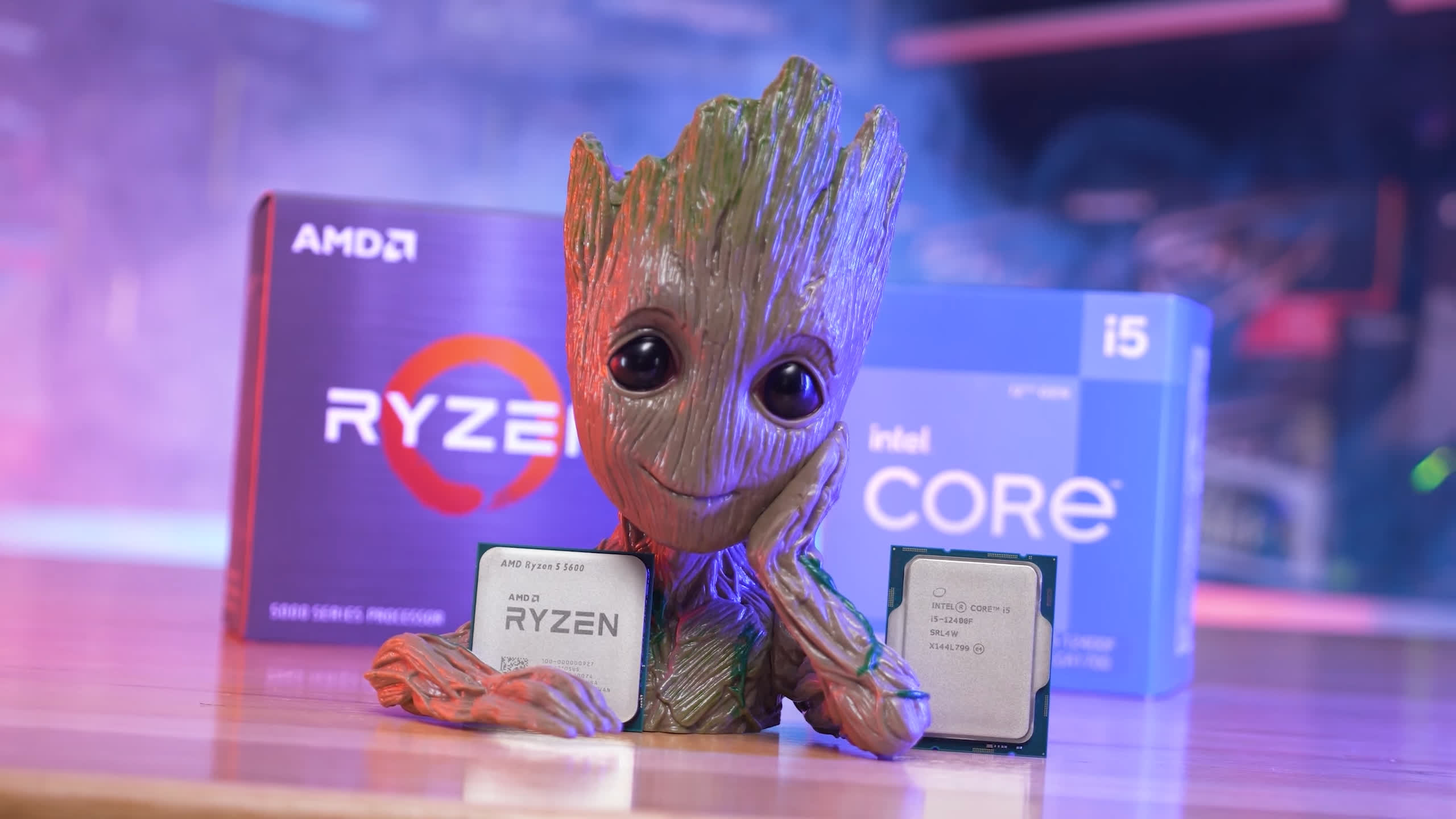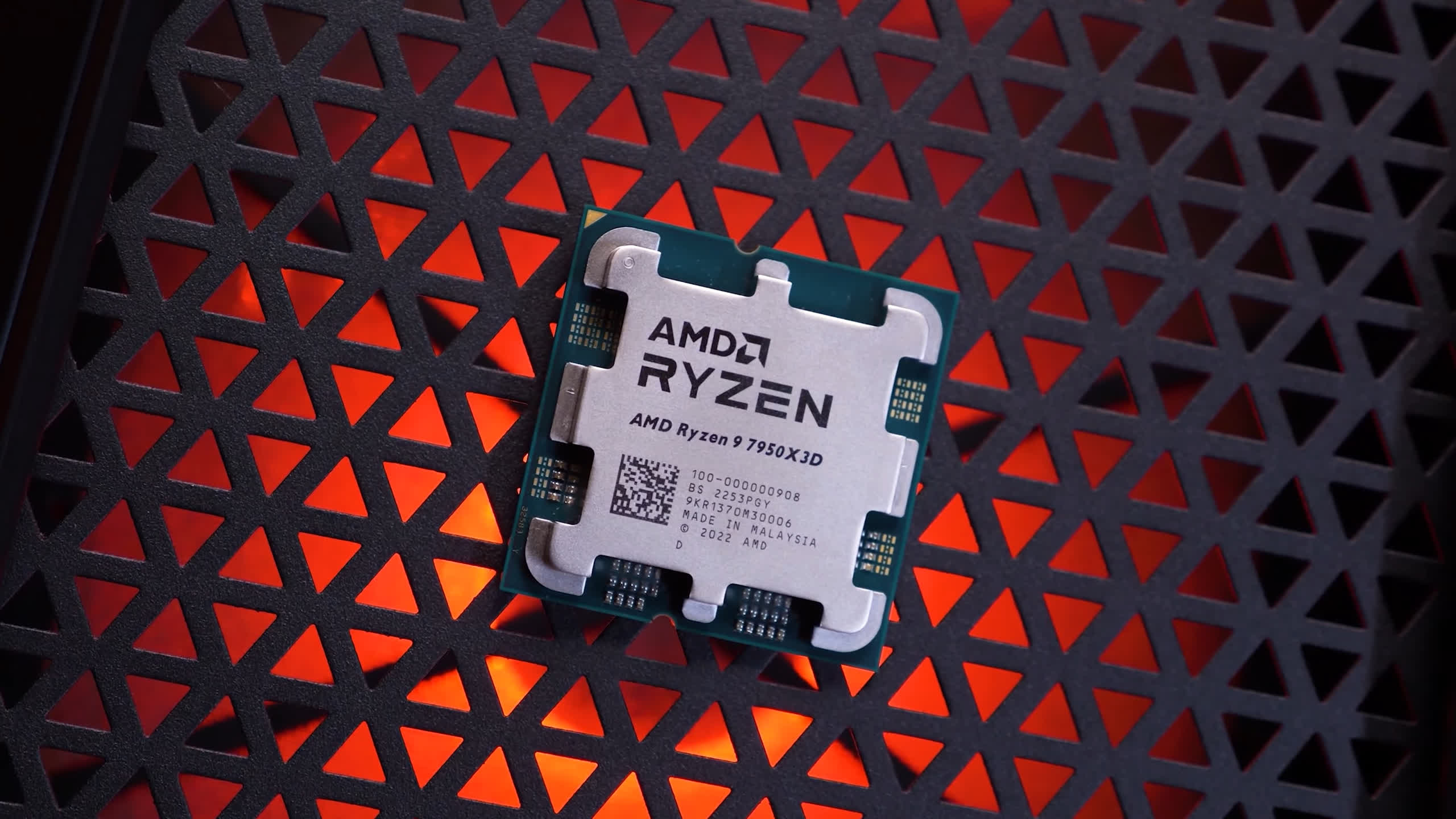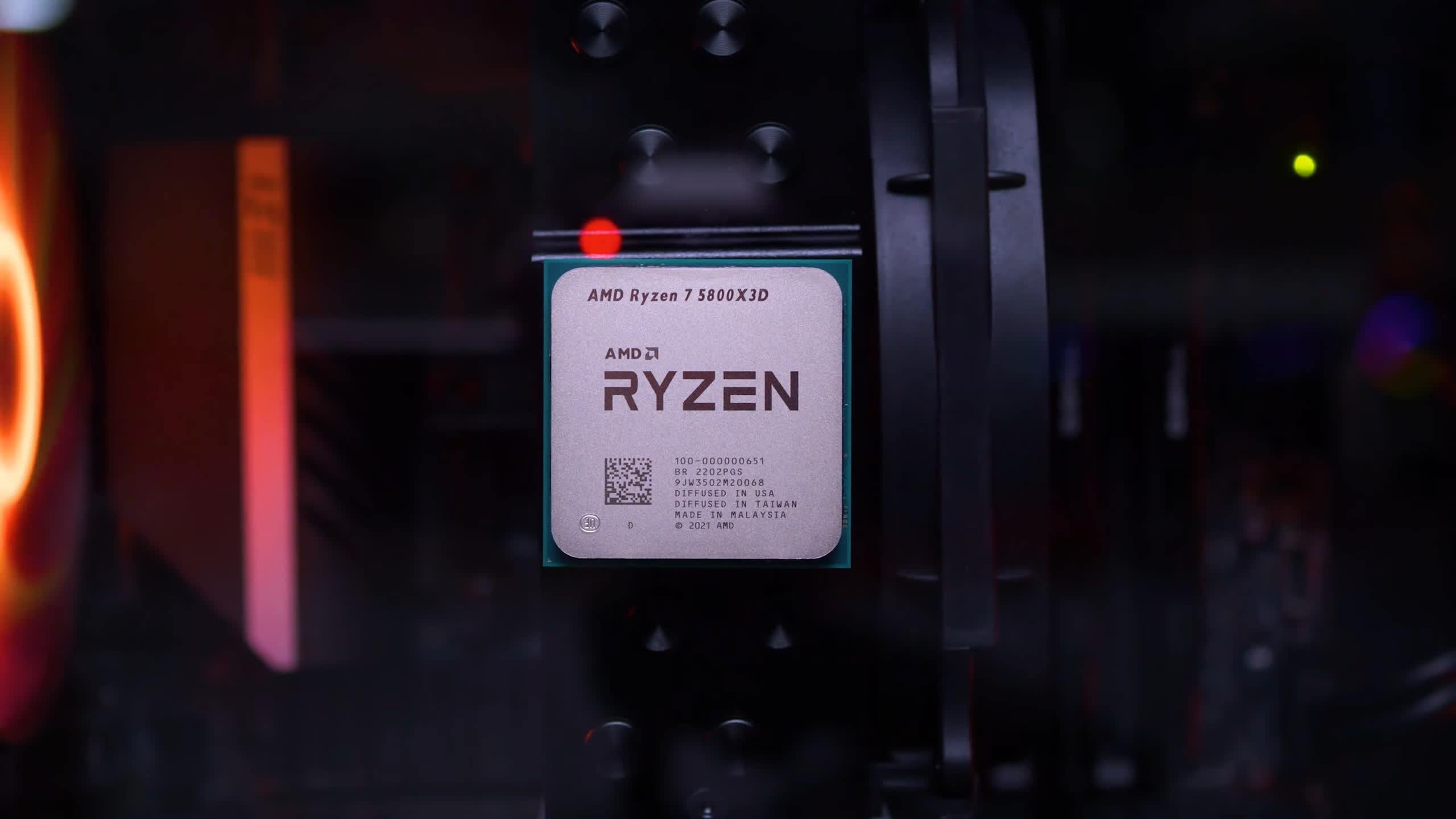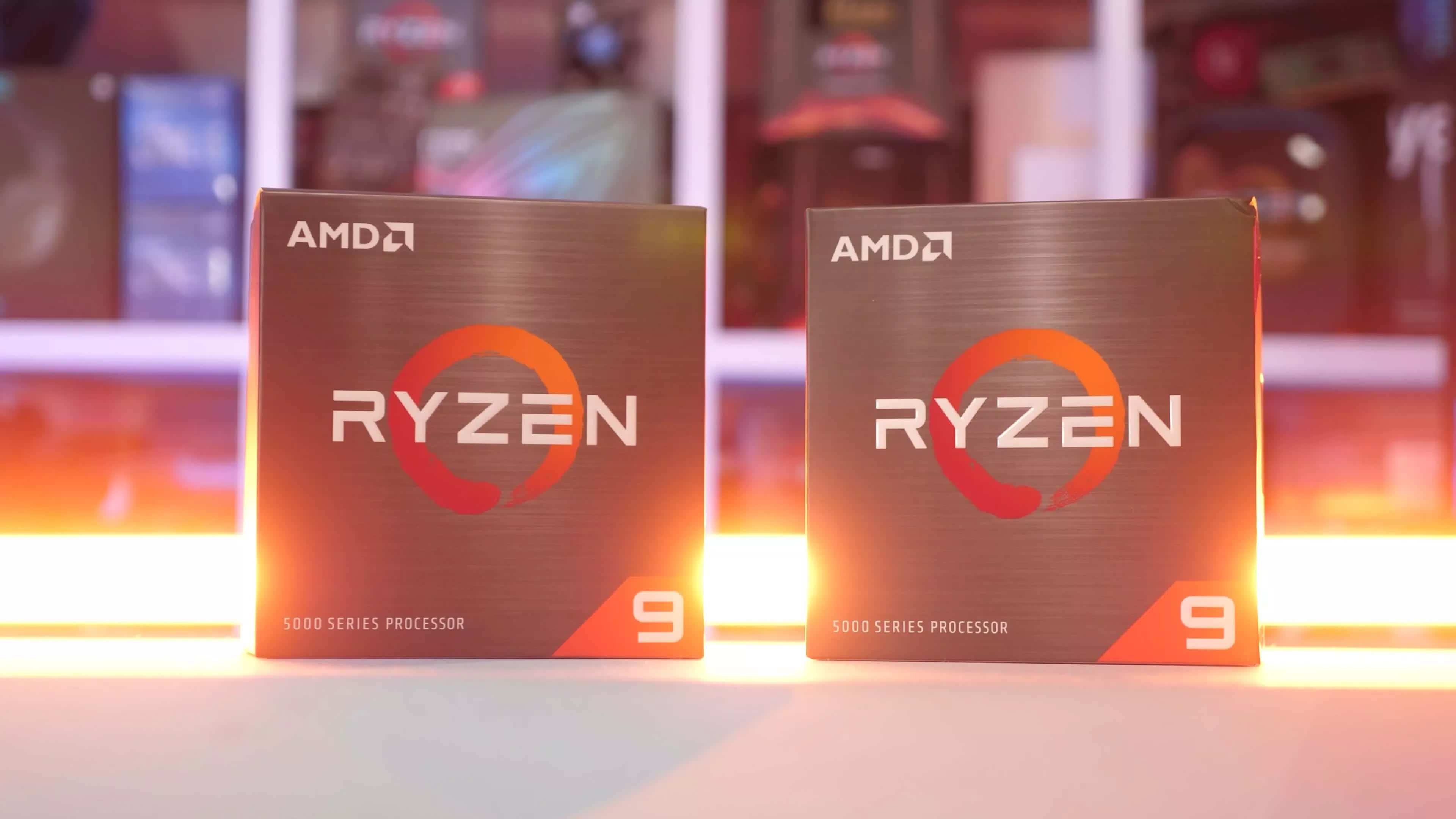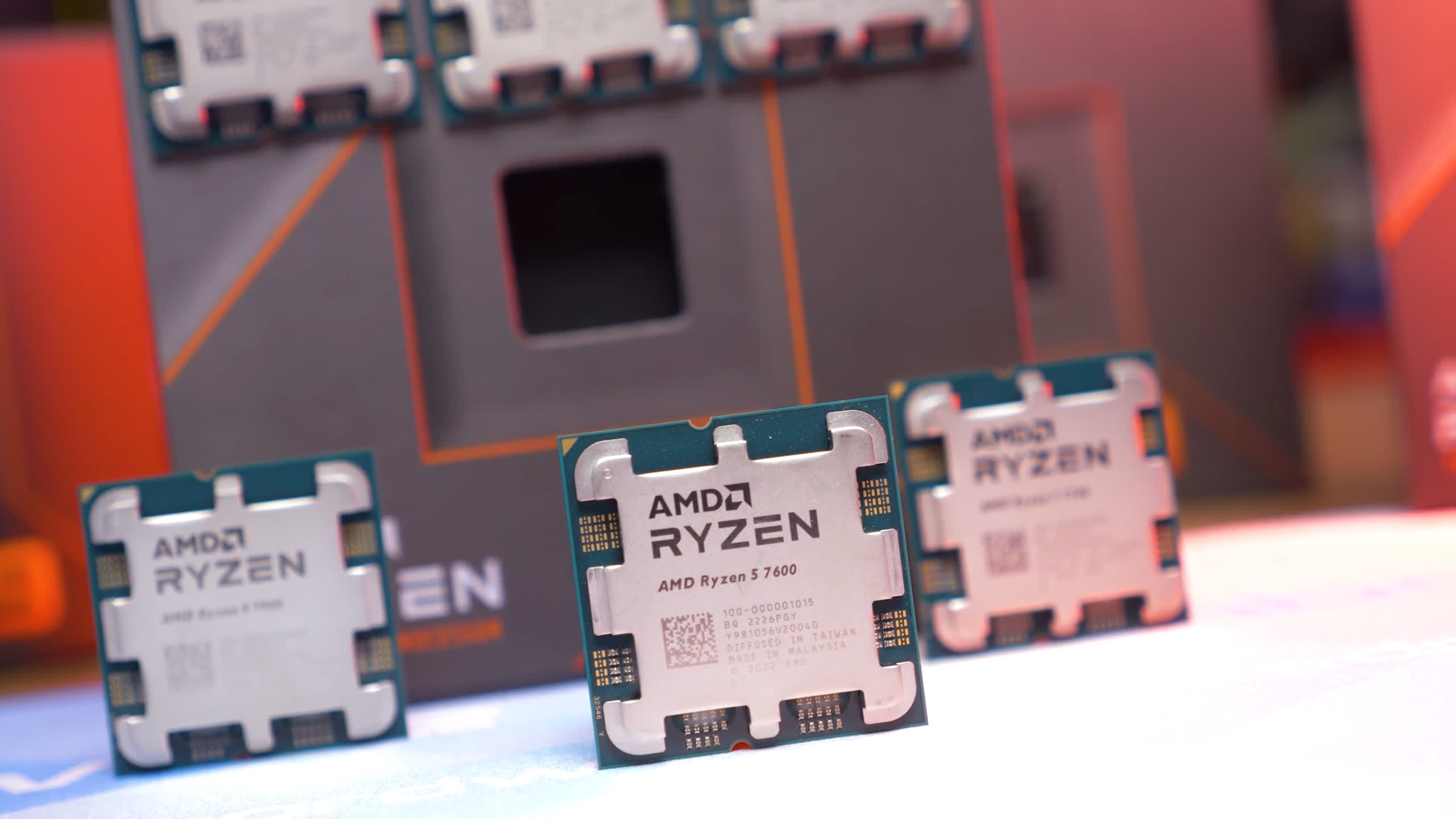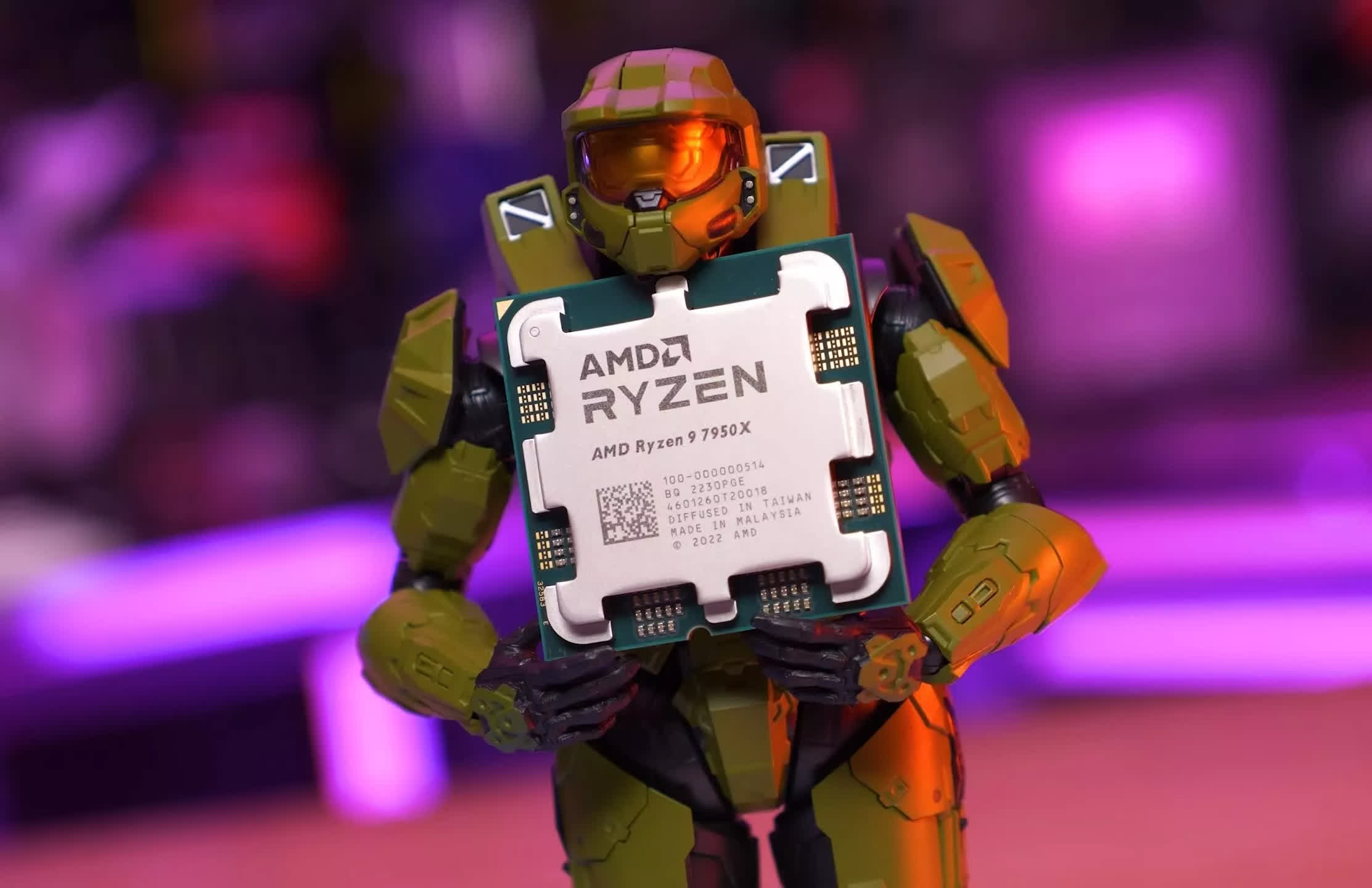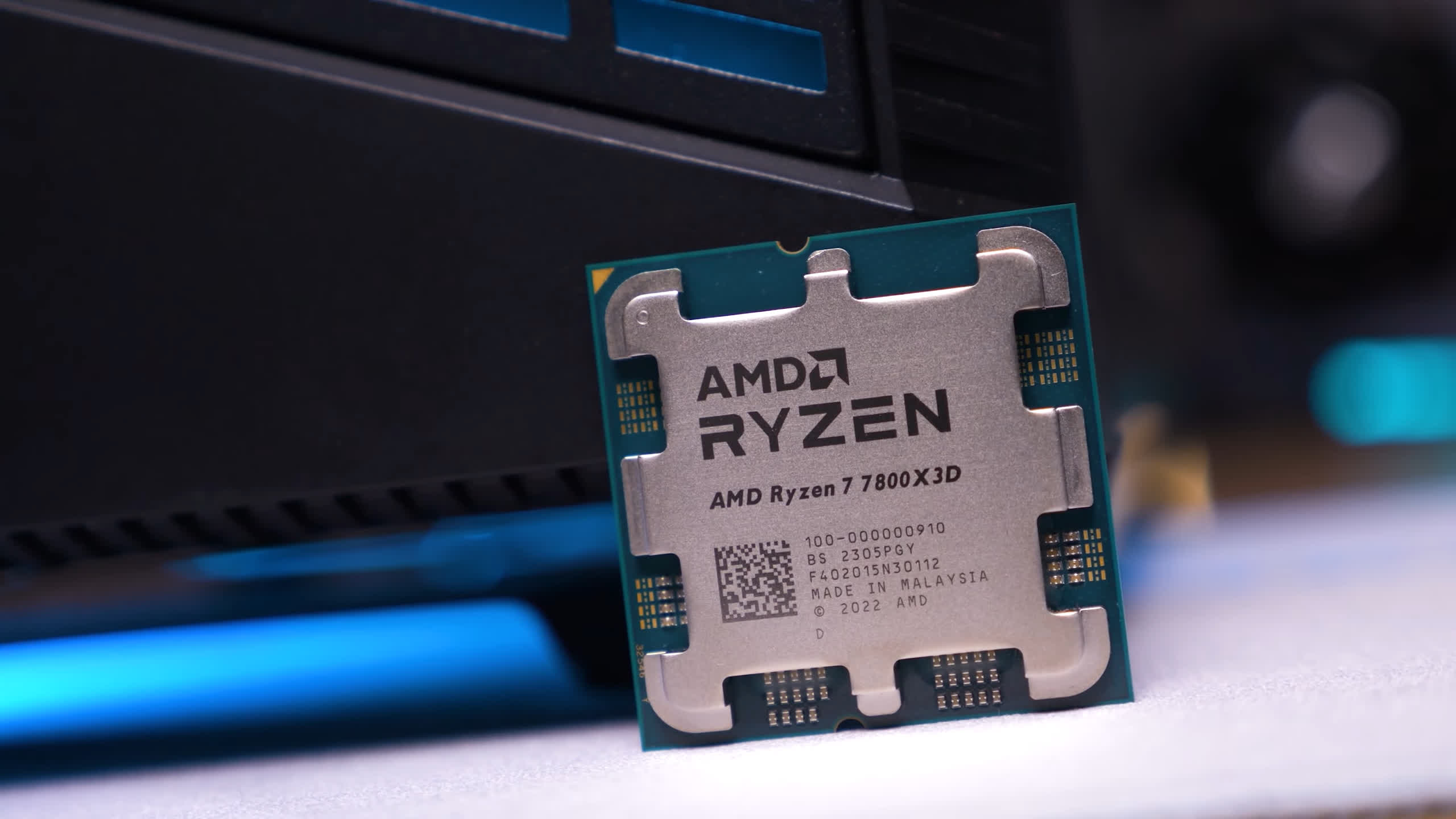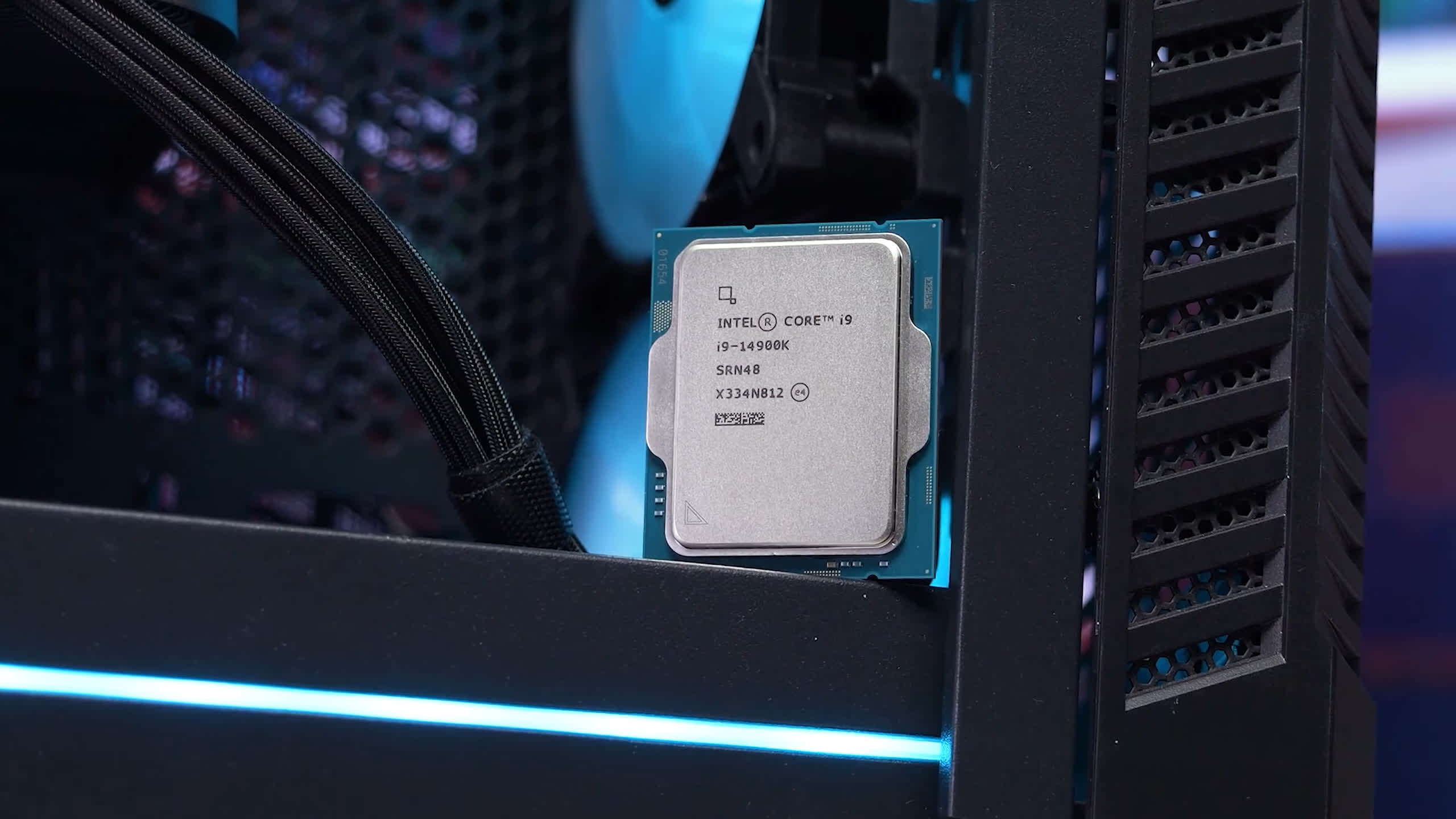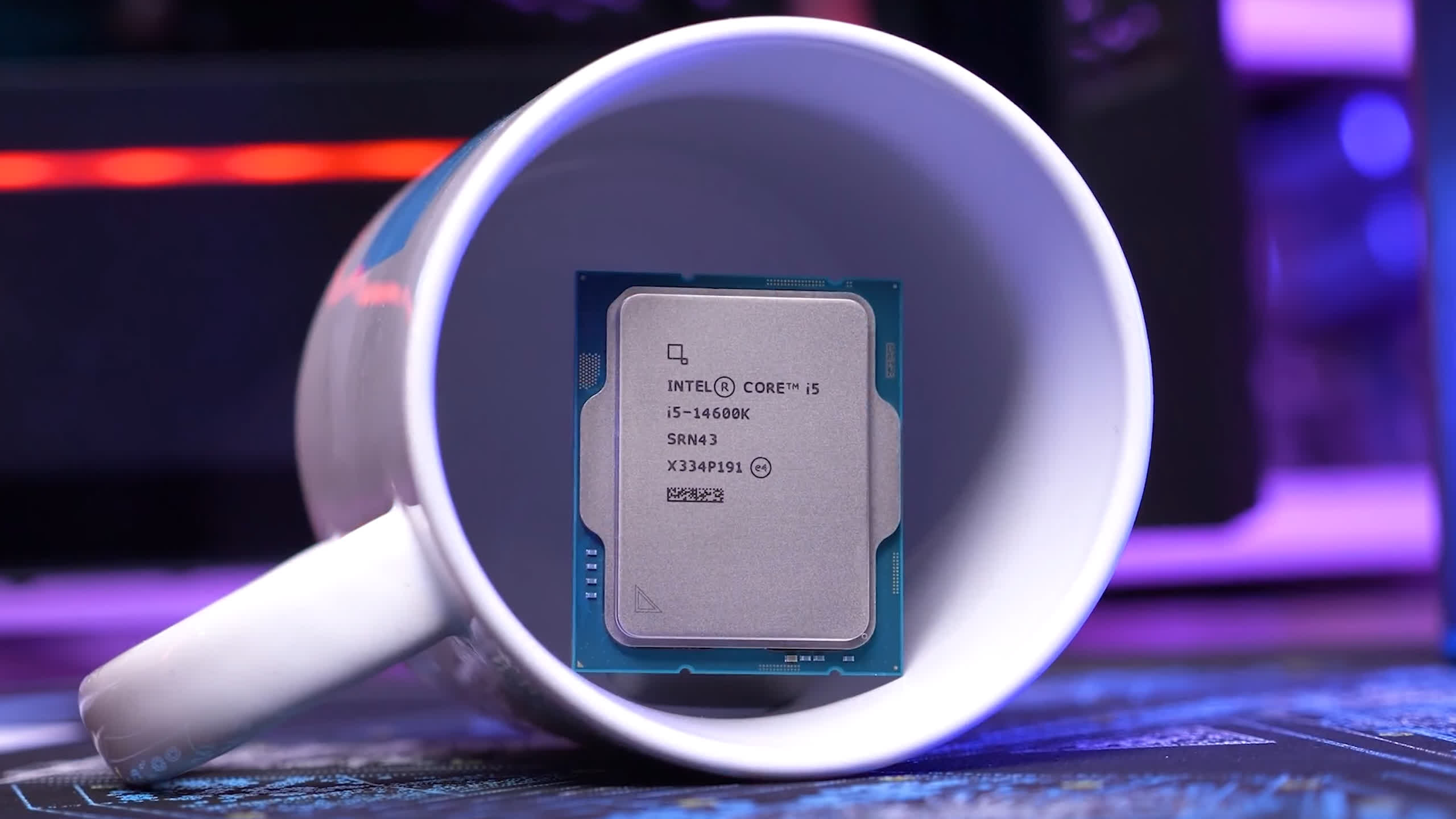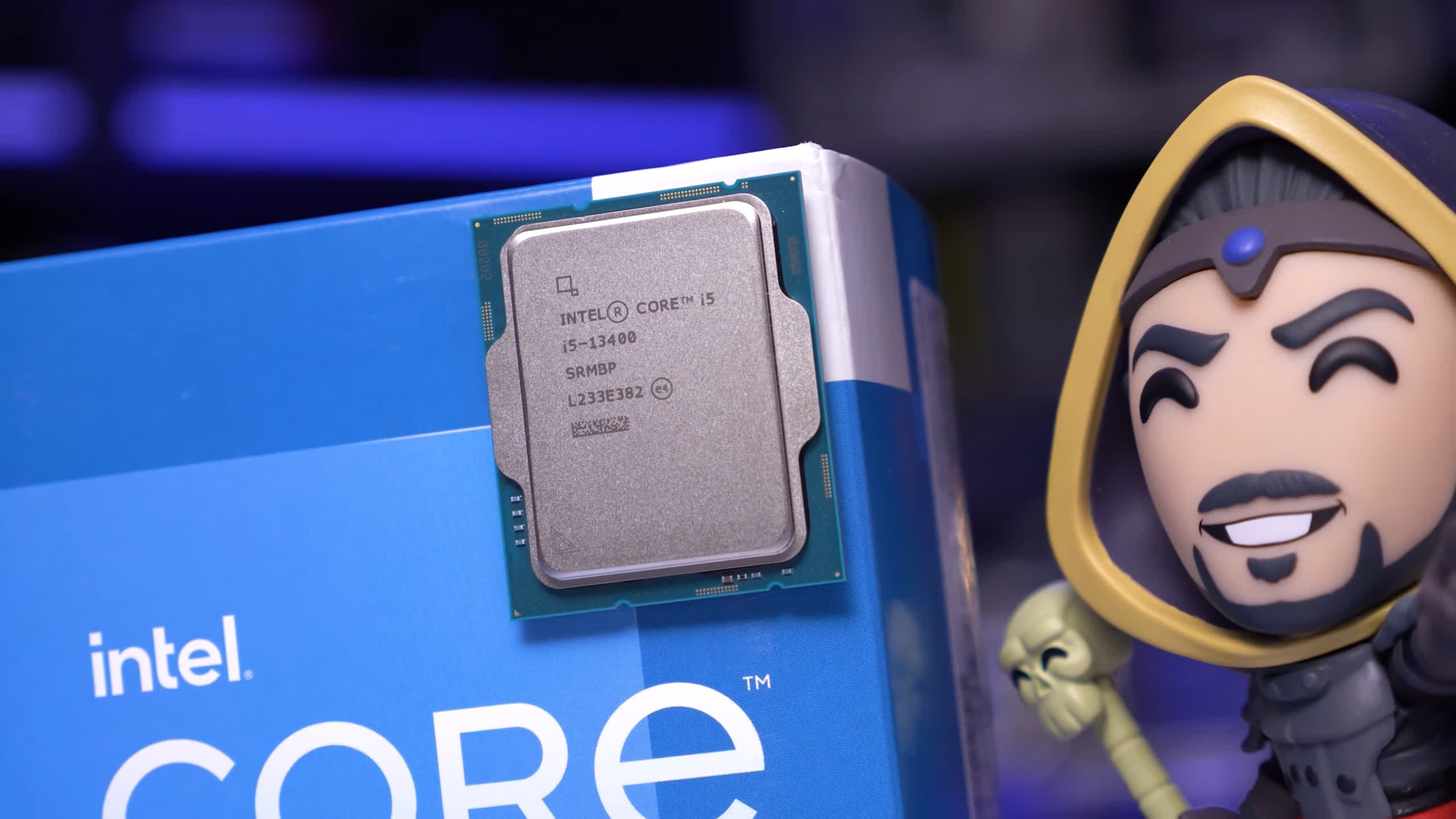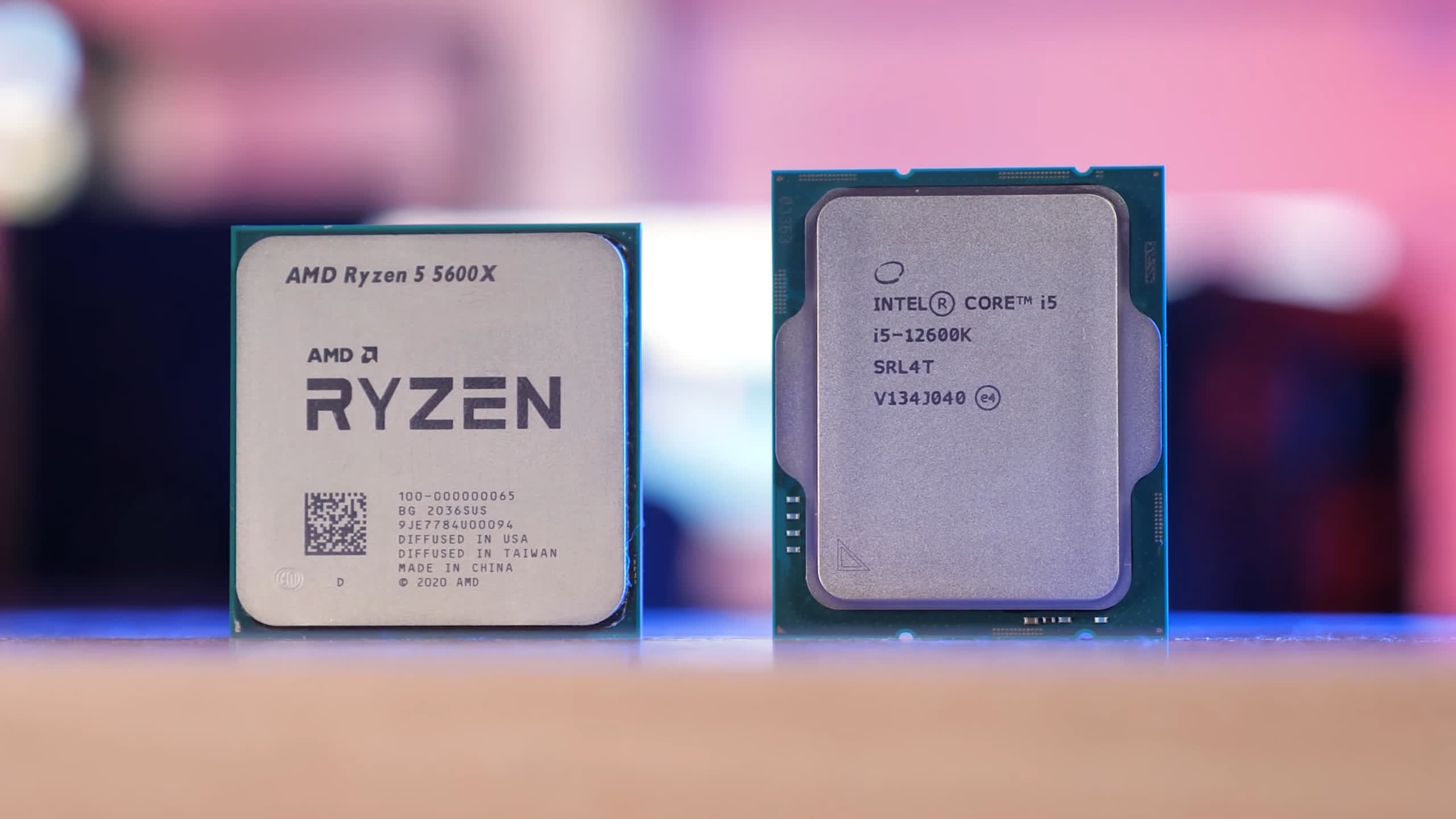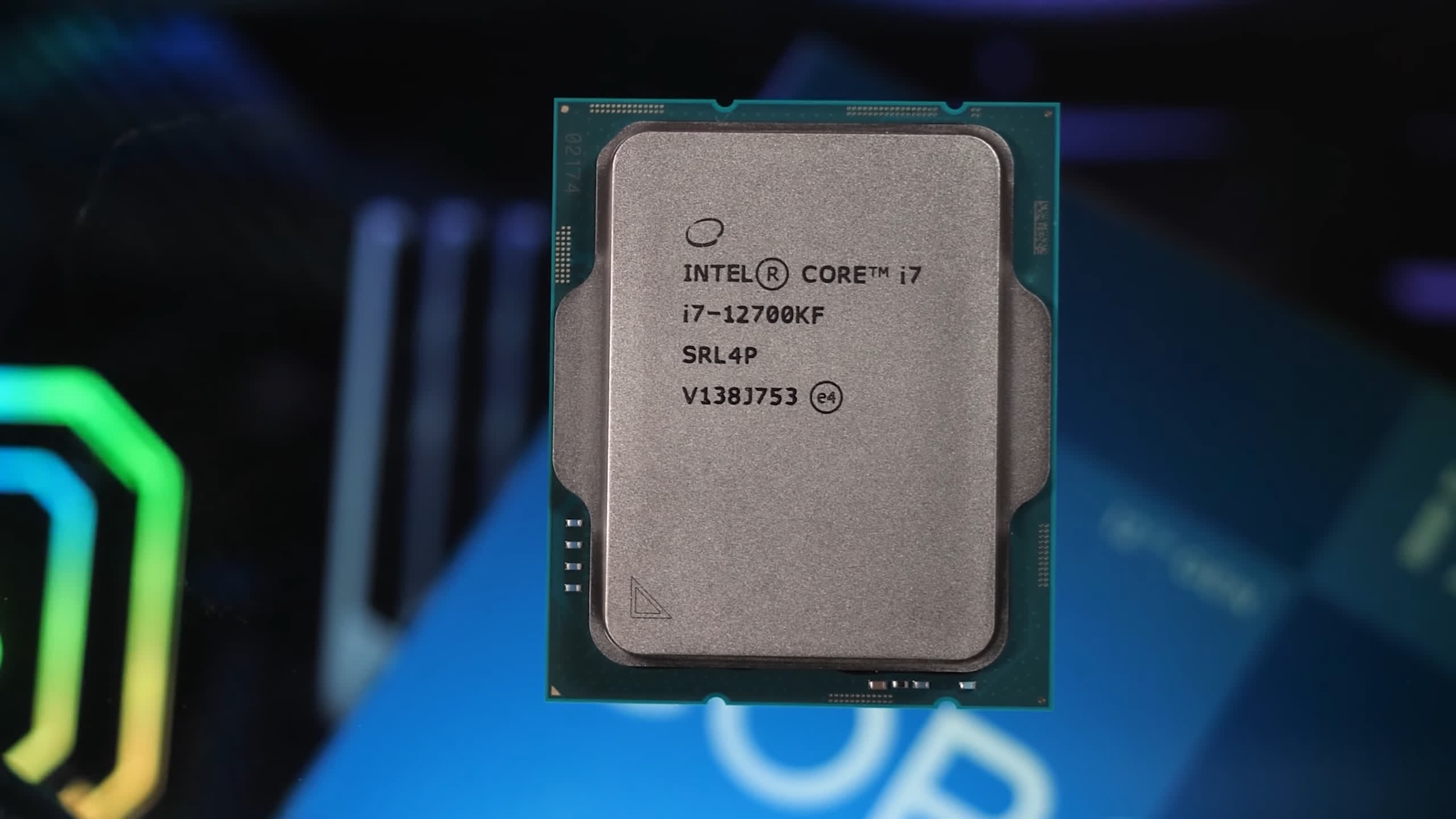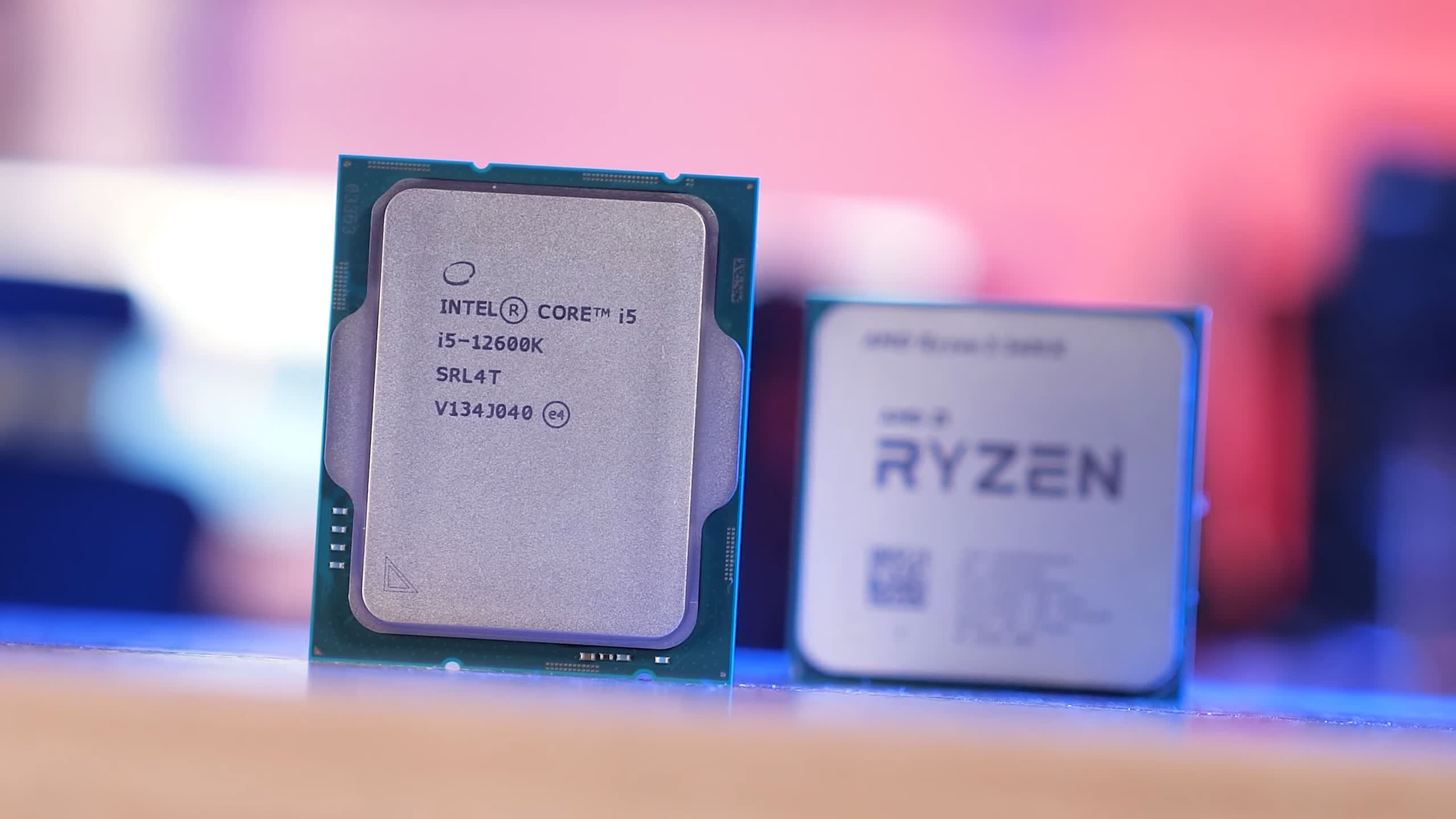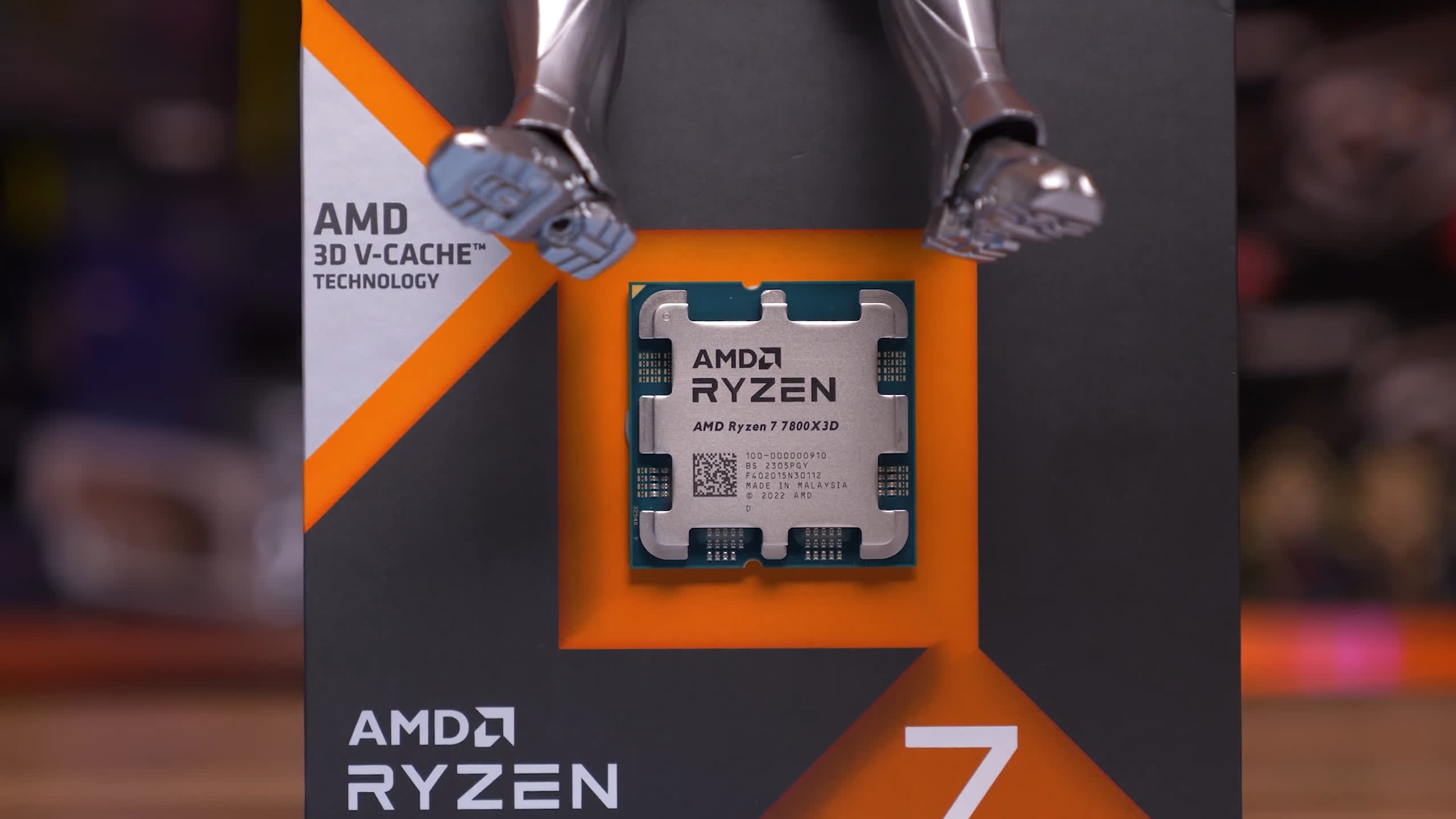Earlier this week, we looked at GPU pricing and the market to see what sort of prices would truly constitute a Black Friday sale. Today, we're back to do the same, but this time for the the CPU market, and give our advice on the kind of deals you can expect during the holiday shopping season.
What we've often found over the years is that during Black Friday, there can be products marked as discounted or a "deal" that is not actually a deal at all. This happens because retailers frequently compare the deal price with the MSRP but conveniently overlook that the product has been discounted below the MSRP for some time. This can create the illusion of a more impressive deal than it actually is.
Case in point, we saw this happening several times when examining graphics cards, where the so-called "Black Friday price" was only $10 or $20 lower than the price from the previous month.
You might also find it helpful to have some pricing information readily available for reference when evaluating discounts that might be available for only a few days or even just a few hours.
In our data, we have included the lowest CPU prices over the last six months, prices from the previous month, current prices, and more. This data is sourced from PCPartPicker and CamelCamelCamel, a great resource for Amazon shopping.
AMD Ryzen 5000 Series Price Guide
We'll start with AMD's Ryzen 5000 line because these CPUs are the go-to for people already on the AM4 platform looking for an easy drop-in upgrade. In a lot of circumstances it won't make sense to go with a full Zen 4 platform upgrade when you can grab parts like the Ryzen 7 5800X3D at a discount.
| MSRP | Average Price | Lowest Price Last 6 Months | Price Last Month | Current Price (Online) | Current Price (Micro Center) | Good Price | |
|---|---|---|---|---|---|---|---|
| Ryzen 9 5950X | $800 | $467 | $424 | $472 | $500 | $450 | $350 |
| Ryzen 9 5900X | $550 | $339 | $290 | $343 | $290 | $290 | $250 |
| Ryzen 7 5800X3D | $450 | $322 | $270 | $322 | $322 | $300 | $250 |
| Ryzen 7 5800X | $450 | $209 | $188 | $210 | $210 | $190 | $170 |
| Ryzen 7 5700X | $300 | $187 | $170 | $170 | $170 | $170 | $170 |
| Ryzen 7 5700G | $360 | $175 | $160 | $185 | $167 | $160 | $150 |
| Ryzen 5 5600X | $300 | $156 | $138 | $160 | $159 | $140 | $130 |
| Ryzen 5 5600 | $200 | $141 | $130 | $135 | $138 | n/a | $130 |
| Ryzen 5 5600G | $260 | $129 | $120 | $127 | $138 | $130 | $110 |
The 5800X3D is the go-to choice for AM4 gamers as it offers the best gaming performance on that platform. As of writing, it's priced at around $320 at online retailers. That's a good price, but not amazing as the CPU has been available multiple times over the last few months at around $300, with a lowest price of $270.
It's hard to say exactly what value to place on the best CPU that can be slotted into an existing motherboard, but a little below $300 would be ideal, especially given the price of standalone Zen 4 processors – $250 would be a great buy.
For gamers that don't need a lot of cores for productivity apps, if you're not grabbing a 5800X3D, the next best choice is the Ryzen 5 5600. There's only about a 5% difference in average gaming performance between the 5600 and the Ryzen 9 5950X, and an even smaller difference between the 5600 and 8-core models like the 5800X, so it doesn't make a ton of sense to pay a large premium for additional cores.
There's only about a 5% difference in average gaming performance between the 5600 and the Ryzen 9 5950X.
Current pricing has the Ryzen 5600 at around $140, with the lowest price seen at $130. Given it's been available at ~$140 for quite some time, we don't think that's much of a discount. Still, given the 5600 is about 15% slower than the 5800X3D for less than half the price, anything around $130 seems like a decent upgrade for those after a low cost drop in CPU upgrade coming from much slower parts (like a Ryzen 5 2600, which is ~35% slower).
For other CPUs in the line-up, there's the Ryzen 5 5600X which is basically a 5600, and then the 8-core models such as the Ryzen 7 5700X and 5800X. The 5700X is at its lowest ever price which is a decent deal, but it still costs 30% more than the 5600 at little gain for gamers or those using single-thread limited apps. For core-heavy workloads it's not bad, the 5700X is ~35% faster for 30% more money, but we wouldn't pay that unless we needed the productivity performance.
It's a similar story with Ryzen 9. At $290, the 5900X makes no sense for gamers as it's slower than the similarly priced 5800X3D, and for multi-thread productivity work it's around 45-50% faster than a 5700X for a more than 70% price premium. Even though $290 is a historic low, with $300 seen occasionally, we think this part needs to be $250. It should also be mentioned that multi-core performance is around the level of the Ryzen 7 7700X, available for $320, however the Zen 4 part is much faster for gaming, so $290 just isn't much of a deal.
The Ryzen 9 5950X at $500 (or $450 at Micro Center if you can buy locally), is higher than its historic low from just a few months ago, and $450 is nothing overly special given what we've seen across the last 3 months. It's slower than the $400 7900X for productivity and gaming, although that requires a platform upgrade, and it currently carries a hefty premium over the 5900X. We wouldn't buy one for more than $350.
AMD Ryzen 7000 Series Price Guide
We imagine most people buying a Zen 4 CPU are doing so alongside a full platform upgrade. The good news is that a lot of these CPUs are currently discounted, and could make sense over a drop-in Zen 3 CPU upgrade even if you're on AM4.
| MSRP | Average Price | Lowest Price Last 6 Months | Price Last Month | Current Price (Online) | Current Price (Micro Center) | Good Price | |
|---|---|---|---|---|---|---|---|
| Ryzen 9 7950X3D | $700 | $643 | $588 | $657 | $588 | $570 | $570 |
| Ryzen 9 7950X | $700 | $567 | $520 | $551 | $542 | $520 | $500 |
| Ryzen 9 7900X3D | $600 | $493 | $462 | $500 | $502 | $470 | $460 |
| Ryzen 9 7900X | $550 | $398 | $350 | $407 | $395 | $370 | $350 |
| Ryzen 7 7800X3D | $450 | $390 | $350 | $370 | $360 | $350 | $350 |
| Ryzen 7 7700X | $400 | $338 | $289 | $320 | $320 | $300 | $260 |
| Ryzen 7 7700 | $330 | $313 | $275 | $310 | $306 | $280 | $260 |
| Ryzen 5 7600X | $300 | $247 | $200 | $238 | $210 | $200 | $200 |
| Ryzen 5 7600 | $230 | $226 | $200 | $225 | $200 | n/a | $200 |
For example, the Ryzen 5 7600 is just $200 right now, a historic low price, and it offers similar gaming performance to the 5800X3D at $320. You're not going to be able to purchase a motherboard and DDR5 memory for that $120 difference, but it may only cost an additional $70 to $80 to go the full platform upgrade.
Given the promise of future CPU support, similar gaming performance to the 5800X3D, faster memory and better productivity performance, we think the pricing of the 7600 and 7600X is pretty decent right now and constitutes a deal – it's at a historic low now and 10% cheaper than last month.
Like with Zen 3, most other non-X3D Zen 4 processors don't make sense for gamers that aren't interested in core-heavy productivity workloads. In our latest benchmark session we found the 7950X is just 8% faster for gaming than the 7600X, and the 7700X is just 4 percent faster, so spending an extra $100 on the 8-core model makes no sense.
To be honest, the 8-core parts are not that attractive right now, even at early Black Friday prices. At best, the Ryzen 7 7700X is 30% faster for core-heavy workloads, but it costs 50% more than the six-core parts: a larger gap than we saw at launch comparing MSRPs. $260 would make more sense, that would be a 17% discount over recent average prices and would be the cheapest ever price.
The Ryzen 9 7900X is currently priced between $370 and $400, just a ~25% premium over the 8-core models, despite offering nearly 50% more productivity performance (and obviously you'd buy this primarily for application use). It also stacks up quite favorably in value to the 7600X, although current pricing at online retailers isn't a discount over recent average pricing, around $400 has been achievable for 3 months now. We don't hate this pricing, but $350 would be a great deal.
The 7950X is about 30% faster than the 7900X in core-heavy apps and is priced ~35-40% higher – not giving you perfect scaling but it's not far off; a small premium for the best isn't ridiculous. With that said, pricing has been around $550 for some time, so a 5% discount on Black Friday isn't anything to get excited about. We'd be looking for a price below $500.
Then there's the X3D parts, which are currently the fastest for gaming. Compared to the Ryzen 5 7600, the 7800X3D is not great value: it is 27% faster in our latest gaming benchmarks, but costs 75% more, so you're paying a hefty premium for the best. The ~$350 price point isn't that different to last month, but if you want the fastest gaming CPU it's also not a bad deal. Anything below $350 sounds pretty great to me if you can get it.
There's also the Ryzen 9 X3D models which are a good choice for mixed gaming and production workloads at its current price. The 7950X3D is nearly twice as fast as the 7800X3D for core-heavy tasks, but is only 60% more expensive. It's as cheap as it's ever been and below MSRP. That's a great deal in our opinion if you need this sort of processor.
Intel 14th-gen Core Series Price Guide
Moving over to Intel CPUs, the 14th generation is an underwhelming release in our opinion. The Core i9-14900K is just a few percent faster than the 13900K, so it makes absolutely no sense to buy at a higher price than the 13900K, which is $500 right now.
| RCP | Average Price | Lowest Price Last 6 Months | Price Last Month | Current Price (Online) | Current Price (Micro Center) | Good Price | |
|---|---|---|---|---|---|---|---|
| Core i9-14900K | $589 | $591 | $570 | $597 | $578 | $550 | $450 |
| Core i9-14900KF | $564 | $558 | $552 | $574 | $552 | n/a | $440 |
| Core i7-14700K | $409 | $414 | $403 | $418 | $403 | $380 | $350 |
| Core i7-14700KF | $384 | $393 | $393 | $393 | $393 | n/a | $340 |
| Core i5-14600K | $319 | $339 | $328 | $328 | $328 | $300 | $220 |
| Core i5-14600KF | $294 | $311 | $304 | $304 | $304 | n/a | $210 |
For gamers it makes no sense, as you'd buy the 7800X3D instead, or the 14600K which is just 10% slower. And for productivity users it's similar to the 7950X from AMD but with much higher power consumption and no further platform support. All of those factors lead us to conclude that a good price for these parts is lower than the current asking one.
The Core i7-14700K is a genuinely new part with additional E-cores compared to 13th-gen, which allows it to get within 15% of the 14900K in core-heavy productivity while offering similar gaming performance. At ~$390 it doesn't offer much for gamers, as it's more expensive than the 7800X3D, but for productivity work the price isn't bad. You'll have to factor in platform and power consumption, as well as the performance of lower and older parts, but something around $350 would be a decent discount. That would make it both faster and cheaper for productivity than the 7900X.
The 14600K ended up 17% slower than the 7800X3D in our testing, and the KF model is priced around $305 right now, making it 16% cheaper. It is faster than the 7800X3D and 7700X for productivity work, and power consumption isn't horrific, though you're still dealing with a largely dead platform where the only upgrade will be to the 14900K.
The issue here is that the 14600K is basically a 13600K, which is basically a 12700K in performance, and the 12700KF is currently available for just $200.
The issue here is that the 14600K is basically a 13600K, which is basically a 12700K in performance, and the 12700KF is currently available for just $200. So we don't see any reason to pay more than $220 accounting for the fact it's slightly faster.
Intel 13th-gen and 12th-gen Core Price Guide
Looking back a generation, we've already slotted in where we think the 13600K and 13900K should be. Current 13600KF pricing is pretty good – though this is more from a productivity angle, as it's only 5% faster than the 7600X for gaming while costing 25% more. The Core i7-13700K though should be priced more around $300 to match the value of the 13600K and give a really solid reason to buy it over a Zen 4 processor.
| RCP | Average Price | Lowest Price Last 6 Months | Price Last Month | Current Price (Online) | Current Price (Micro Center) | Good Price | |
|---|---|---|---|---|---|---|---|
| Core i9-13900K | $589 | $562 | $541 | $570 | $544 | $500 | $450 |
| Core i9-13900KF | $564 | $529 | $492 | $536 | $501 | n/a | $440 |
| Core i7-13700K | $409 | $384 | $345 | $364 | $345 | $330 | $310 |
| Core i7-13700KF | $384 | $412 | $336 | $364 | $336 | n/a | $300 |
| Core i5-13600K | $319 | $315 | $270 | $309 | $270 | n/a | $210 |
| Core i5-13600KF | $294 | $303 | $250 | $280 | $250 | n/a | $200 |
| Core i5-13400 | $221 | $212 | $200 | $228 | $231 | $200 | $160 |
| Core i5-13400F | $196 | $207 | $165 | $200 | $201 | n-a | $150 |
| Core i3-13100 | $134 | $144 | $100 | $135 | $147 | $130 | $120 |
| Core i3-13100F | $109 | $114 | $75 | $110 | $119 | n/a | $110 |
The Core i5-13400F is hard to justify at ~$200 at the moment as that isn't a discount. On top of this, it's 10% slower than the 7600X for gaming at the same price on a platform with more limited upgrade paths, so switching over to an LGA1700 board to get a slower CPU than if you went AM5 makes little sense. There have been occasional sales below $200, we don't see the value equation swinging into Intel's favor unless this part was $160.
It's the 12th-gen lineup where Intel processors are the most heavily discounted and priced well below MSRP. So let's see how these parts fare in terms of whether it's worth an LGA1700 platform upgrade to grab 12th-gen, instead of newer Intel parts or Zen 4.
| RCP | Average Price | Lowest Price Last 6 Months | Price Last Month | Current Price (Online) | Current Price (Micro Center) | Good Price | |
|---|---|---|---|---|---|---|---|
| Core i9-12900K | $589 | $395 | $315 | $415 | $315 | $300 | $280 |
| Core i9-12900KF | $564 | $396 | $310 | $389 | $310 | n/a | $270 |
| Core i7-12700K | $409 | $294 | $211 | $306 | $211 | $210 | $210 |
| Core i7-12700KF | $384 | $276 | $200 | $287 | $200 | n/a | $200 |
| Core i5-12600K | $289 | $224 | $153 | $230 | $153 | $152 | $160 |
| Core i5-12600KF | $264 | $200 | $140 | $219 | $140 | n/a | $150 |
| Core i5-12400 | $192 | $170 | $162 | $167 | $162 | $150 | $130 |
| Core i5-12400F | $167 | $153 | $140 | $150 | $146 | n/a | $120 |
| Core i3-12100 | $122 | $123 | $113 | $119 | $119 | n/a | $100 |
| Core i3-12100F | $97 | $92 | $79 | $95 | $93 | n/a | $90 |
Where we need to begin is that Alder Lake is typically similar or slightly slower than Zen 4 for gaming, the very best case scenarios would have the 12900K a little ahead of the 7600X. The Core i5-12600K ends up around 10% slower for gaming, and similar in productivity performance compared to the 7600X, at $140 for the KF variant.
That's a 30% discount over the Ryzen 5 7600X which makes it the better value CPU in terms of performance, though there is the question mark of upgrade support, which is in favor of the AMD processor. We think this is a good price.
The 12700KF's pricing is also aggressive at $200, given it's 30% faster for productivity tasks putting it well ahead of the similarly priced 7600X, and seems fairly priced relative to the 12600KF. This essentially dictates what you should pay for the 13600K and 14600K as well, given those processors are very similar in overall performance. We think this is a great price for a part like this if you had productivity in mind, given the 12700KF is more in the league of the 7700X for these tasks. Again, if you're not planning on regular updates that's great value.
The 12600K sets expected pricing for the 12400F as the locked Core i5 model is around 10% slower in games. Current pricing for the 12400F is not hugely discounted compared to prior months, and with the 12400F and 12600KF going for a similar price, it makes no sense to grab the 12400F right now, it would need to be priced more like $120-130. The Core i3-12100F makes a lot of sense at $90 though, given its slower again for gaming and about half as strong as the 12600K in multi-core workloads.
Closing Thoughts and What to Buy?
Looking across the CPU market, there's a couple of ways to go if you're thinking about purchasing a processor. If you're on the AM4 platform and want a drop-in upgrade over an older Zen processor, the Ryzen 7 5800X3D and Ryzen 5 5600 remain the best choices, although current pricing isn't all that special relative to prior months. Some Zen 3 CPUs are also still a bit pricey, such as the 5950X despite recent discounts.
It gets a lot more complicated for those thinking about a platform upgrade or new PC build, as recent discounts to Intel's 12th-generation Alder Lake processors are making a strong play up against Zen 4 and the AM5 platform. However, you have to factor into that decision future upgrade pathways (which are limited to non-existent on Intel LGA1700) and power consumption, depending on the CPU you're interested in.
If you're not concerned about later upgrades, the obvious choice is an Intel 12th-gen system. The 12600KF at $140 is a fantastic price, as is the 12700KF at $200, especially for builds where multi-core application performance is important. You're basically getting a tier up in performance compared to Zen 4 at the same price, while the 12600KF is a great option for gamers as it's not that far behind a Ryzen 5 7600 while being significantly cheaper.
For upper-tier levels of gaming and productivity performance, Intel is harder to justify without further discounts. The Core i9-13900K is only slightly cheaper than the 7950X, and it's no surprise to see the entirety of the 14th-gen making no sense without significant discounts given their similarity to 13th-gen and even 12th-gen. Especially as parts like the 13900K have effectively zero upgrade path, we'd want a more significant discount during Black Friday.
Meanwhile, if you do want an upgrade path with potential for future CPU support, AMD AM5 makes the most sense. The Ryzen 5 7600 at $200 is a decent budget choice, while the 7800X3D at $360 is also a great deal if you want flagship gaming performance relative to Intel's competing parts. These are both historically good prices, too.
You should now have a good look at what sort of pricing would make sense and what sort of deals to look out for. Black Friday in our opinion should always be about the best deals, the biggest savings, and historic low prices; if you're not getting a reasonable saving compared to the prior month or the lowest price across the last few months, it's not much of a deal.
We'd also recommend you look out for bundle deals if you're considering a full platform upgrade or a new PC, some retailers will offer a good discount if you buy a CPU, motherboard and memory in a bundle. Our motherboard roundups will help you avoid dud boards, and we've seen some pretty good value there in the past, so something to keep in mind.
